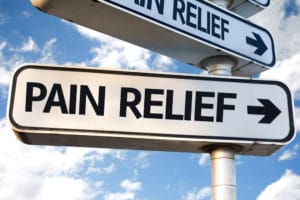Evaluation of Patients with Kidney Stones in New York City
Urologists at New York Urology Specialists are among the top physicians in New York caring for kidney stones. As a courtesy we are providing educational information for patients and prospective visitors to our website about kidney stone care.
If you have any questions, to schedule a consultation or if you need a second opinion, please contact us or call: 646-663-4421
The Importance of Stone Analysis
The cause and chemical composition of a kidney stone may have some bearing on its diagnosis, management, and particularly on prevention of recurrence. Diagnosis is usually based on clinical history supported by laboratory investigations which includes urinalysis, stone analysis, imaging studies, blood profiles, and urinary metabolic evaluation.
 Urinalysis and 24 Hour Urine Collection
Urinalysis and 24 Hour Urine Collection
\24-hour urine collection is the cornerstone of the evaluation of patients with renal stones as it allows for calculation of urinary supersaturations for the various materials associated with stone formation such as calcium oxalate, calcium phosphate, and uric acid, as well as the identification of other causes that may be contributing to risk.
Two 24-hour urine samples are collected usually 4-6 weeks after stone passage or urological intervention. Causes of kidney stones can be discovered and further episodes can often be prevented from information obtained from 24 hour urine collection.
24 hour urine collection includes measurements of volume, creatinine, calcium, oxalate, uric acid, citrate, sodium, and urea.
Stone Analysis
Stone analysis plays a valuable role in the diagnosis of kidney stone patients.
Imaging
Imaging involves kidney ultrasound, x-ray and computed tomography (CT). CT is the most sensitive and specific mode of diagnosis.
Kidney Ultrasound is often used to minimize radiation to patients with recurrent kidney stones. MRI is not useful for kidney stone detection.
Blood Tests
Blood is analyzed for serum calcium, urea, creatinine, uric acid, phosphate, bicarbonate, parathyroid hormone (PTH), and glucose. Creatinine levels are used to identify renal insufficiency.
PTH (parathyroid hormone) is a crucial hormone secreted by the parathyroid gland, involved in the regulation of calcium and phosphorus in the body. When the parathyroid gland secretes abnormal levels of PTH, it can cause elevations of blood calcium concentration (hypercalcemia), high urinary calcium levels (hypercalciuria), formation of kidney stones and decalcification of bone.
Metabolic Evaluation
In high-risk patients (i.e. strongly positive family history, metabolic disorders, airline pilots, prior stone episodes) with a stone episode, as well as in all recurrent stone formers, an extended metabolic evaluation is performed.
Differential Diagnosis
Kidney pain can be caused by blood clots in the kidney or ureter. Ureteral obstruction from cancers can also cause back pain.
Once the cause of stone formation are established, preventive measures including dietary changes if any will be discussed.
Finding Urologists for Kidney Stone Care in Brooklyn and Manhattan
Our convenient offices are located in Brooklyn Heights in Brooklyn, NY in zip code 11201 close to Park Slope, Williamsburg and easily accessible by public transportation from Brooklyn, Queens, Long Island and Bronx.
Our Manhattan office is in close proximity to midtown, upper east side (UES), and upper west side close to zip codes: 10065, 10021 and 10075, and easily accessible from zip codes 10022 and 10017 in midtown Manhattan. The office is easily accessible via public transportation from Chinatown, Financial district and Tribeca.
If you have any questions, to schedule a consultation or if you need a second opinion, please contact us or call: 646-663-4421
We offer affordable, highest-quality urology care. We offer weekday, weekend, and evening office hours.
Find out our office hours or directions to our office.

 Urinalysis and 24 Hour Urine Collection
Urinalysis and 24 Hour Urine Collection